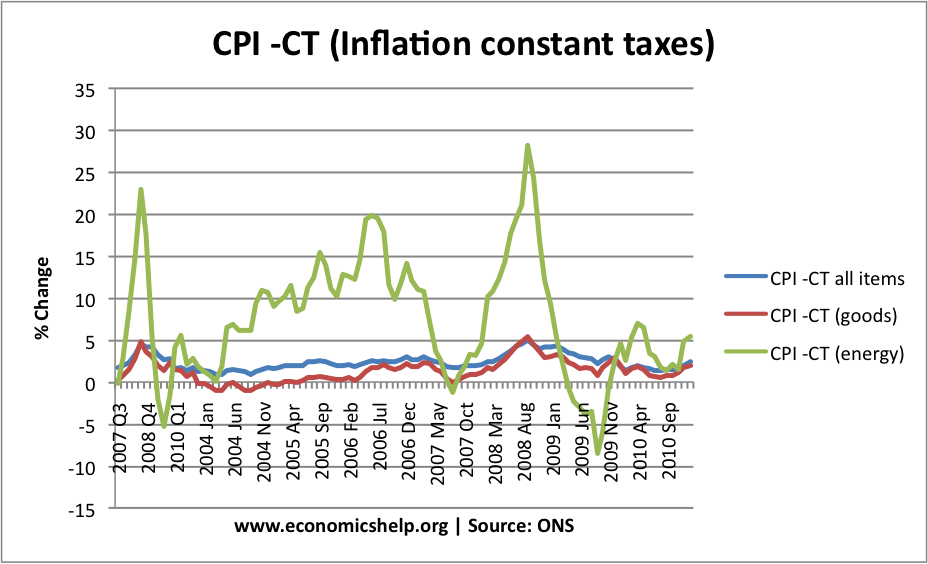Three questions on quantitative easing, inflation and why inflation in the UK is high despite falling real incomes and lower consumer spending.
Readers Question: Isn’t the government (of UK) already printing lots of money?
The Bank of England have electronically created money and used this to buy government bonds from financial institutions. The Bank created around £200bn and used this to buy bonds both government and commercial bonds. The Bank of England is independent from the government, though they have to report to government if inflation misses the target.
And if it is not to pay off their debt, why are they printing more money?
1. Reduce interest rates on government and commercial bonds. By using electronic money to buy bonds, the price increases and the interest rate falls. The Bank estimated the £200bn QE programme was a factor in reducing government bond yields by 100 basis points (1%) and commercial bonds by 400 basis points [1. Bank of England QE One Year On – Speech by Spencer Dale] Lower interest rates in theory help promote economic growth and investment. (effect interest rates on economy)
2. Increase Bank Lending. It is hoped that using created money to buy government bonds from banks will encourage them to lend. When the Bank of England buys bonds from commercial banks it gives banks an increase in money reserves. This should encourage them to lend more to business, improving levels of investment and economic growth. In practice this has been limited
3. Confidence. Cutting interest rates didn’t cause an economic recovery. Quantitative easing is a signal the monetary authorities are committed to increasing economic growth (even at expense of inflation). This gives more confidence compare to say ECB where they prefer lower inflation to QE.
Also Why quantitative easing works
In addition, the pay freeze has forced people to save and not spend, so inflation should in theory be slowing (which is not), why is it not?
There are different factors that cause inflation. Two main factors are


